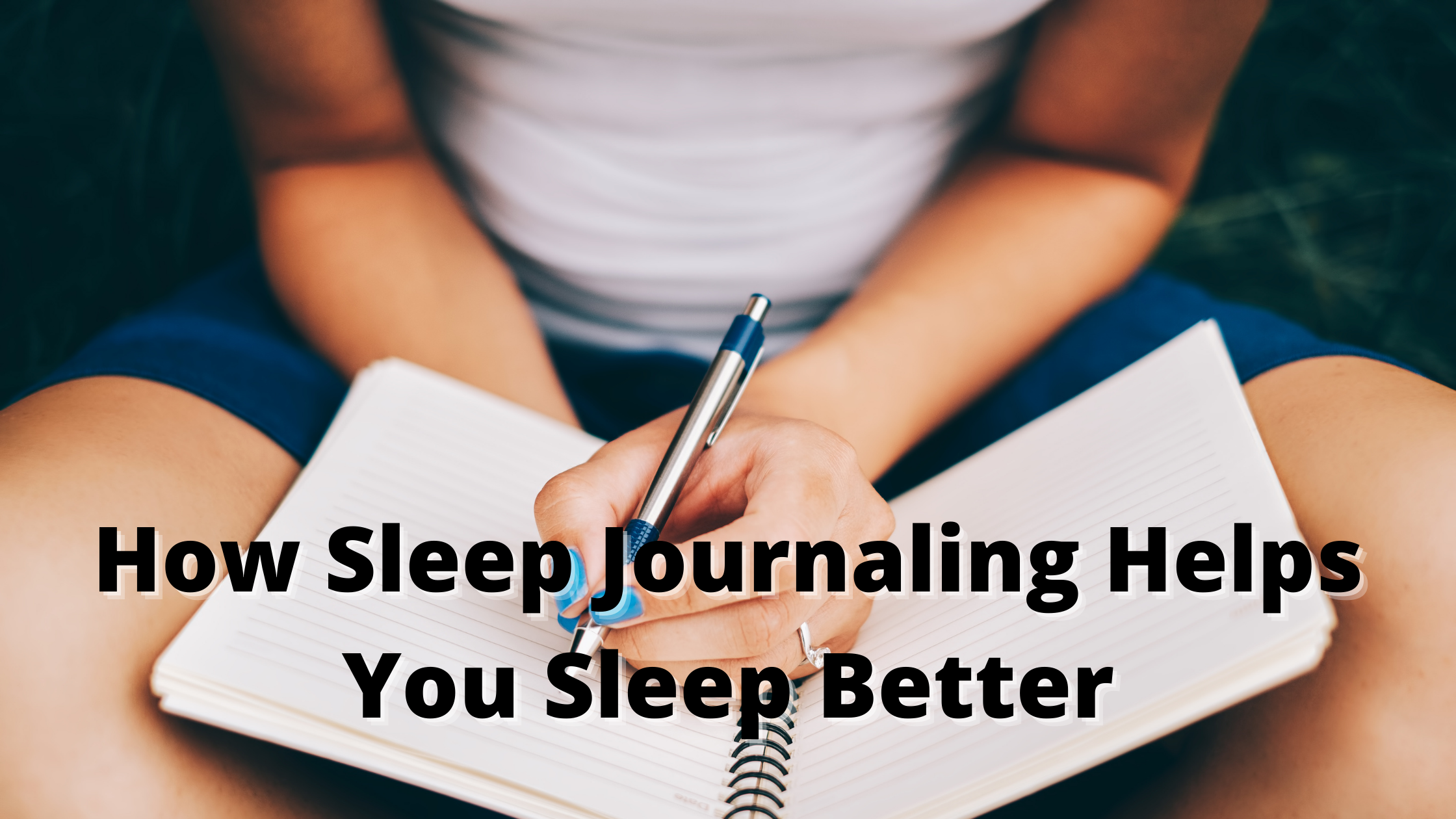Going to bed can be very difficult due to the swirling thoughts going on in your head. However, if you can journal every night before you go to bed, you may see significant improvement in your ability to fall asleep faster. Continue reading to find out how sleep journaling can help you sleep.
What is sleep journaling?
Sleep journaling is different than a sleep diary or a dream journal. Sleep diaries log sleep habits: when you fell asleep and woke up, how many times you woke up throughout the night, etc. A dream journal, on the other hand, tracks what your dreams are. Sleep journaling is a time to journal your thoughts and feelings, what happened throughout the day, and essentially try to clear your mind so you can go to bed.
Nighttime worry, rumination, and anxiety are all mental happenings that can make going to sleep very difficult. If you can unload those thoughts before going to bed, then going to sleep may come a lot easier. Journaling can assist in unloading these thoughts as it's a mindful tool where you can take time to write out your experiences of the day and work on processing them so they don't keep you up at night.
What do you write in a sleep journal?
What you write in a sleep journal is completely up to you. Sleep journals are spaces for you to get things off your mind. If you're unsure of what to write, you can also look up journal prompts that get you thinking. Some examples of these prompts are:
Vent your day's worries and frustrations
Keep a gratitude journal
Make a to-do list
All of these are just examples of things you can write about, and are tools to help you get these thoughts out of your mind and onto paper so you can go to bed.
How does sleep journaling help with sleep?
Journaling can be beneficial to your mental health by allowing you to process your racing thoughts in a healthy a productive way. Bedtime worry can significantly impact sleep latency (the time it takes to go to bed), making it difficult to fall asleep. By slowing down and taking the time to work through your thoughts and emotions, you can fall asleep more easily.
A study at Baylor University required 57 students to write for five minutes before bed. They found that those who created to-do lists each evening fell asleep faster and that those who created very detailed lists fell asleep even faster. It's unclear whether or not sleep disorders play any role in this, but the original outcomes are promising so far.
CBT for Anxiety and Insomnia
Cognitive Behavioral Therapy is an effective treatment for racing minds and anxious thoughts. These patients can learn to cope with their anxieties and stop the cycle of negative thinking, helping them get restful sleep. Journaling is a common technique used in CBT because it helps bring awareness to a patient's mental health struggles and encourages self-reflection as part of the path to wellness. It uses a three-step ABC process.
A is the activating event. Write down the event that led to your unpleasant or anxious feelings and describe the initial thought that came to your mind when you experienced the event.
B stands for beliefs. Identify the negative thinking behind your belief and ask yourself if you can think of a person, or even when this kind of thinking first occurred. It may be challenging, so you'll have to look deep and figure it out. Write that down as well.
C are consequences both short and long term if you continue thinking those thoughts. Be sure to consider the potential physical, emotional, and mental consequences.
D is disputation is this is where change occurs. Challenge your reasoning by looking for evidence for and against your way of thinking about the situation. Now that you've considered your thinking, write down a healthier way of approaching these thoughts. Also, write down positive ways of thinking and consider ways you might act on that line of thinking in future situations. Finally, ask yourself if you feel more optimistic. This will allow you to reinforce the idea that you can change your thinking and can change your mood.
This is an effective treatment model for insomnia.
When to seek help
Some nighttime worries and occasional sleepless nights are normal in our everyday lives. However, if you regularly struggle with racing thoughts and poor sleep, it's important to seek out treatment options.
If you think you may have a sleeping disorder like insomnia or sleep apnea, then it's important to get tested so you can get the necessary treatment. If you live in a constant state of anxiety, hopelessness, or negativity, get in touch with your doctor or insurance provider so they can help you find better treatment options for better mental health and sleep.
Also, you can click the orange button below to take a free online sleep test and talk with a sleep professional today. 
Resources:
https://thesleepdoctor.com/2021/05/28/sleep-journaling/

